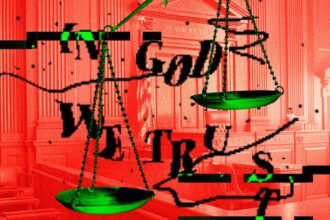NPR has filed a lawsuit against President Donald Trump in response to his executive order aimed at cutting federal financial support for NPR and PBS.
The lawsuit, lodged in a federal court in Washington, DC, by NPR alongside public radio stations in Colorado, argues that Trump’s attempt to reduce the congressionally allocated funding for these broadcasters is unconstitutional. It further contends that Trump infringed on the First Amendment by labeling NPR and PBS as “biased media” and subsequently withdrawing their federal funding.
The complaint states, “It is not always obvious when the government acts with a retaliatory intent in infringement of the First Amendment. ‘But this wolf comes as a wolf.’” Trump’s allegations of NPR and PBS delivering content that is not “fair, accurate, or unbiased” are highlighted in the complaint, noting that the comments made by Trump and other administration officials reinforce the perception that the executive order serves a “retaliatory purpose.”
For instance, in an April 1 post on Truth Social, Trump labeled NPR and PBS as “RADICAL LEFT ‘MONSTERS’ THAT SO BADLY HURT OUR COUNTRY.”
The complaint points out that the Supreme Court has recently established that “it is not the government’s role to determine the appropriate balance of private expression—to ‘un-bias’ what it considers biased, instead of allowing speakers and their audiences to make such judgments.” The lawsuit asserts that Trump’s executive order “explicitly seeks to punish and control” NPR’s and PBS’s “news coverage and other speech that the administration considers ‘biased.’”
In addition to First Amendment concerns, the lawsuit argues that Trump is infringing upon a fundamental principle of the separation of powers: the authority of Congress to decide how federal funds are allocated.
“The president has no constitutional authority to take such actions,” the complaint states. “Conversely, the power of the purse is reserved for Congress.”
Congress does not directly fund NPR or PBS; instead, it allocates funds to the Corporation for Public Broadcasting (CPB), which then distributes the money to public broadcasters. CPB, a private entity established by congressional legislation, receives its funding two years in advance.
NPR obtains roughly 1 percent of its annual revenue from CPB, while local stations rely more heavily on it, receiving 8 to 10 percent of their annual revenue from the corporation. PBS, on the other hand, gets about 15 percent of its revenue from CPB.









